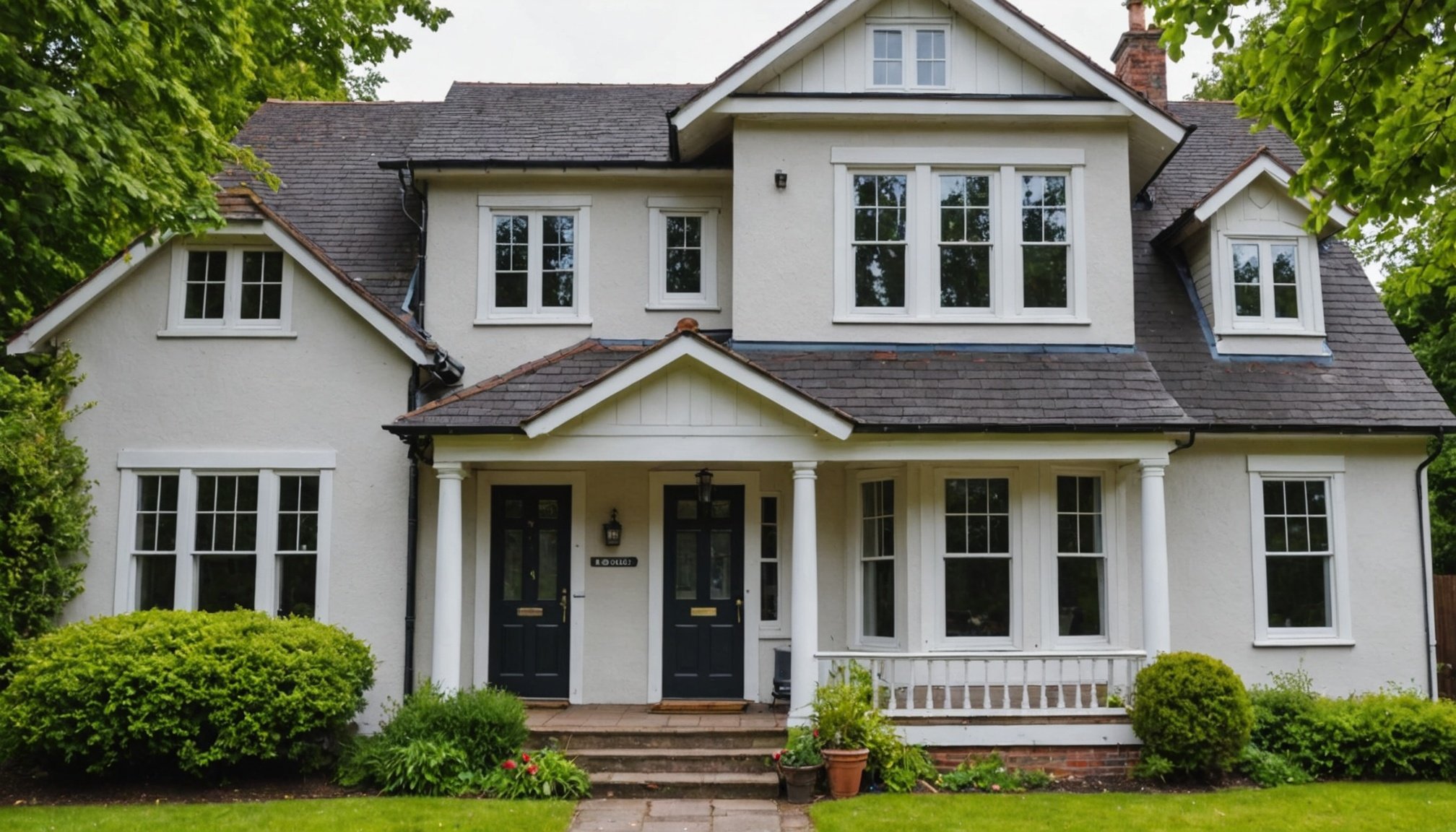Navigating the Journey: A Step-by-Step Guide to Purchasing Foreclosed Properties in the UK
Purchasing a foreclosed property can be a lucrative investment, but it requires careful navigation through a complex process. Here’s a comprehensive guide to help you understand and successfully navigate the journey of buying foreclosed properties in the UK.
Understanding Foreclosed Properties
Before diving into the process, it’s essential to understand what foreclosed properties are and why they become available.
This might interest you : Essential Home Features for Disability-Friendly Living in Manchester: What to Consider
What are Foreclosed Properties?
Foreclosed properties are homes or buildings that have been repossessed by a lender due to the owner’s failure to meet mortgage payments. These properties are often sold at a lower price than their market value to recover the outstanding mortgage amount.
Why Invest in Foreclosed Properties?
Investing in foreclosed properties can be attractive for several reasons:
Also read : Enhance Your Rural Derbyshire Property Value: Top Garden Features That Make a Difference
- Lower Purchase Price: Foreclosed properties are typically sold at a discounted price, making them more affordable.
- Potential for Renovation and Resale: With some renovation, these properties can be resold at a higher price, generating a profit.
- Rental Income: You can rent out the property to generate a steady income stream.
Preparing for the Journey
Before you start searching for foreclosed properties, it’s crucial to prepare yourself financially and legally.
Financial Preparation
To invest in foreclosed properties, you need to have a solid financial foundation.
Checking Your Credit Score
Your credit score plays a significant role in securing a mortgage. A good credit score can help you qualify for better loan terms.
Saving for a Down Payment
You’ll need to save for a down payment, which can vary depending on the lender and the type of mortgage you’re applying for.
Understanding Mortgage Options
There are various mortgage options available, including fixed-rate and variable-rate mortgages. It’s important to understand the terms and conditions of each to make an informed decision.
| Mortgage Type | Description | Pros | Cons |
|
|-----------------------------------------------------------------------------|
|---------------------------------------------------------------------|
| Fixed-Rate Mortgage | The interest rate remains constant throughout the loan period. | Predictable monthly payments, protection from rising interest rates. | Less flexible, may have higher interest rates than variable-rate mortgages. |
| Variable-Rate Mortgage| The interest rate can change based on market conditions. | Potentially lower interest rates, more flexible repayment terms. | Unpredictable monthly payments, risk of increasing interest rates. |
Legal and Professional Help
It’s advisable to seek help from professionals to navigate the legal and financial aspects of buying a foreclosed property.
Estate Agents
Estate agents specializing in foreclosed properties can provide valuable insights and help you find the right property.
Solicitors
A solicitor can guide you through the legal process, ensuring all documents are in order and protecting your interests.
Finding Foreclosed Properties
There are several ways to find foreclosed properties in the UK.
Online Listings
Websites like Rightmove, Zoopla, and local estate agents’ websites often list foreclosed properties. You can filter your search based on location, price, and other criteria.
Auctions
Property auctions are another way to find foreclosed properties. However, be cautious as auctions often involve a quick sale process, and you may not have the opportunity to inspect the property thoroughly before bidding.
Direct from Lenders
Some lenders list their repossessed properties directly on their websites or through specialized real estate agents.
Evaluating the Property
Once you’ve found a potential property, it’s crucial to evaluate it carefully before making an offer.
Physical Inspection
Conduct a thorough physical inspection of the property to identify any needed repairs or renovations. Consider hiring a professional surveyor if you’re not experienced in property inspections.
Market Value
Research the market value of the property to ensure you’re getting a fair deal. Look at comparable properties in the area to determine the market price.
Neighborhood Analysis
The neighborhood can significantly impact the property’s value. Look for signs of a stable and desirable community, such as good schools, low crime rates, and local amenities.
Making an Offer and Closing the Deal
After evaluating the property, you’re ready to make an offer and proceed with the purchase.
Negotiating the Price
Be prepared to negotiate the price based on any issues you’ve identified during the inspection. Keep in mind that foreclosed properties are often sold “as-is,” so you may need to factor in the cost of repairs.
Securing a Mortgage
Once your offer is accepted, you’ll need to secure a mortgage. Ensure you have all necessary documents ready, including proof of income, employment, and credit history.
Closing the Deal
The final step involves signing the legal documents and transferring the ownership. Your solicitor will guide you through this process, ensuring everything is in order.
Post-Purchase Considerations
After purchasing a foreclosed property, there are several things to consider.
Renovation and Repairs
Foreclosed properties often require renovation and repairs. Create a budget and plan for these costs to ensure the property is habitable or ready for resale.
Property Management
If you plan to rent out the property, you’ll need to manage it effectively. This includes finding tenants, handling maintenance, and ensuring compliance with local regulations.
Practical Insights and Actionable Advice
Here are some practical tips to keep in mind when investing in foreclosed properties:
- Do Your Research: Always research the property and the market thoroughly before making an offer.
- Seek Professional Help: Don’t hesitate to seek help from estate agents, solicitors, and surveyors.
- Plan for the Unexpected: Foreclosed properties can come with unexpected issues; be prepared to adapt your plans accordingly.
Real-Life Examples and Anecdotes
Here’s an example of how one investor successfully navigated the process:
“I found a foreclosed property in a desirable neighborhood through an online listing. After conducting a thorough inspection, I identified several issues that needed fixing. I negotiated the price based on these findings and secured a mortgage with a favorable interest rate. With the help of a professional contractor, I renovated the property and resold it for a significant profit.” – John D., Real Estate Investor
Purchasing foreclosed properties can be a rewarding investment, but it requires careful planning, research, and professional help. By understanding the process, preparing financially and legally, and evaluating properties carefully, you can navigate the journey successfully and make a profitable investment.
Final Tips for Investing Dummies
- Start Small: Begin with a single property to gain experience before expanding your portfolio.
- Stay Informed: Keep up-to-date with market trends and legal changes that could affect your investment.
- Be Patient: Investing in real estate is a long-term game; be patient and don’t rush into decisions.
By following these steps and tips, you can make informed decisions and successfully invest in foreclosed properties in the UK.
Additional Resources
For further reading and more detailed information, here are some recommended resources:
- Books: “Real Estate Investing For Dummies” by Eric Tyson and Robert S. Griswold, “API Dummies” by various authors.
- Websites: Rightmove, Zoopla, and local estate agents’ websites.
- Professional Services: Consult with estate agents, solicitors, and surveyors specializing in foreclosed properties.
By leveraging these resources and following the steps outlined in this guide, you’ll be well-equipped to navigate the journey of purchasing foreclosed properties in the UK.











